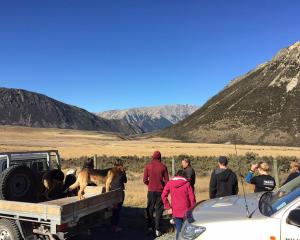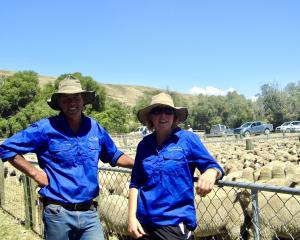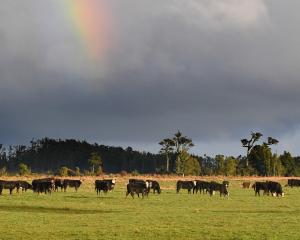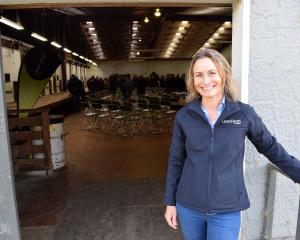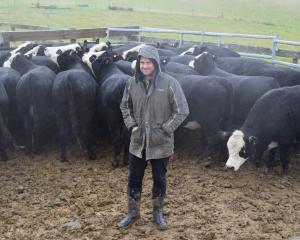
John Scott, who judged the all-breeds beef cattle competition at last week's New Zealand Agricultural Show, has just completed an eight-year stint on the Quality Meat Scotland board, the equivalent of Beef and Lamb New Zealand.
''We've got some huge challenges with Brexit and the anti-red meat lobby,'' Mr Scott said.
''It's a world market now and I would like to see Scotland having closer ties with New Zealand.
''We need to increase consumption of meat around the world and the seasons are different between our countries, so we don't need to be competitive. We have a lot of similarities and we can work together.''
Mr Scott said Scotland had similar challenges to New Zealand with an ageing population among the farming community and the difficulty of attracting the next generation.
''There's some big career opportunities for those who want to get stuck in, whether that's on farm or doing research and all the other areas like rural banking and rural media.''
He said Scotland was well ahead of New Zealand when it came to looking after the environment.
''We have similar issues in forestry, especially in Scotland, but we are very aware of our environment and for years we have been fencing off waterways to conserve water quality and we haven't poached land around waterways to the same extent as you have here.''
Mr Scott and his wife Fiona run 5500 ewes, 250 beef cattle and grow barley and forage crops on a 1800ha farm in Ross-shire in the Scottish Highlands.
They farmed Texel, New Zealand Suffolk sheep and composite breeds Beltex and Aberfield, while the cattle were beef Shorthorn and Luing and the spring barley was for whisky.
The couple won the Farmers Weekly sheep farmer of the year in 2014, a United Kingdom-wide competition and have appeared on the BBC television show This Farming Life, which followed five farmers over a nine-month period.
''The feedback we got was that the general public wanted to know more about what's happening on farm and it's important that we take every opportunity to engage with them to promote our story.''
He said people from all over the United Kingdom came to the Royal Highland Show each year, with more than 380,000 people attending the show over four days.
It was Mr Scott's first time judging in New Zealand and he was interested to see the different breeds among the sheep.
''It's a completely different show culture in Scotland and we have a different feeding regime.
''But I'm picking up some of the same faults. Structure seems to be something breeders here need to focus quite hard on - it's quite an eye opener.
''There's a lot more pampering, show preparation and grooming done in Scotland, but it's great to see the passion of the guys exhibiting and I think they have the same challenges we have of transforming the show environment on to the farm and vice-versa.''
There were breeds at the show which were rarely seen in Scotland, including the Corriedale, Merino and Perendale, while the Border Leicester was of ''a different style''.
The couple also visited the Grasslands Conference and attended a wedding, catching up with some of the 43 Kiwis who have worked on their farm.
After the New Zealand Agricultural Show, the couple planned to stay with Marlborough farmer Doug Avery, who Mr Scott hosted during a speaking tour in Scotland, before returning home.
It was Mr Scott's sixth visit to New Zealand. On an earlier visit in 2005, as part of a Nuffield Scholarship, he studied health planning and disease prevention in beef cattle and sheep.
-By David Hill


